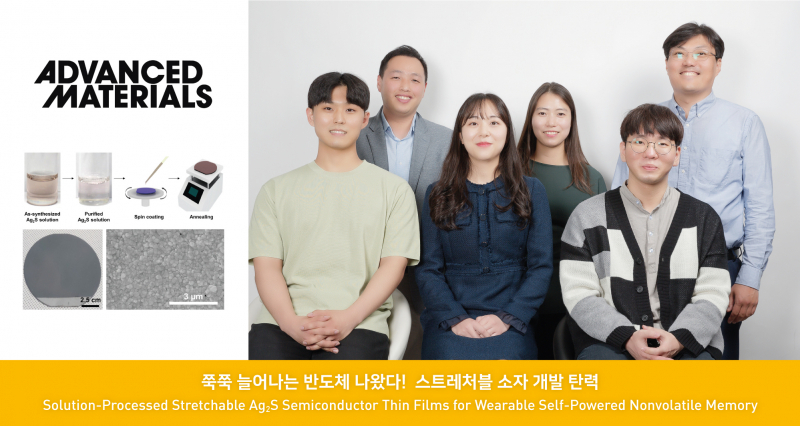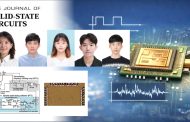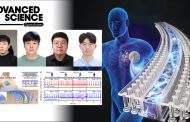Flexible and stretchable electronic devices have received increasing attention due to their great application potential in areas, such as smart wearable devices that collect and store personal, physiological information for medical and healthcare monitoring. These advanced electronics require stretchable semiconductors. Yet, finding candidates of stretchable semiconductors that have an appropriate bandgap and related electrical performance, as well as mechanical and environmental durability has been challenging.
Conventional inorganic semiconductors held by ionic or covalent bonds are intrinsically brittle and show only the strain of about 0.1–0.2%, thus easily experiencing mechanical cracks due to the accumulation of fatigue under repetitive deformation, while organic-based semiconductors are vulnerable to humidity, oxygen, and chemical and thermal stresses, and their inferior electrical properties; therefore, they cannot fulfill the criteria for future deformable semiconductor devices.

A research team, jointly led by Professors Jae Sung Son, Moon Kee Choi, and Ju-Young Kim from the Department of Materials Science and Engineering at UNIST has succeeded in fabricating the intrinsically stretchable inorganic semiconductors, unlike the conventional ones.
In this study, the research team reported the solution-processed synthesis of ductile α-Ag2S thin films and fabrication of all-inorganic, self-powered, and stretchable memory devices. They synthesized the molecular Ag2S complex solution via chemical reduction of Ag2S powder, thereby fabricating wafer-scale highly crystalline Ag2S thin films.
According to the research team, the thin films show stretchability due to the intrinsic ductility, sustaining the structural integrity at a tensile strain of 14.9%. Moreover, the fabricated Ag2S-based resistive random access memory presents outstanding bipolar switching characteristics, as well as excellent mechanical stretchability with no degradation of properties up to stretchability of 52%, noted the research team.

The research team further noted that the new device is highly durable under diverse chemical environments and temperatures from −196 to 300 °C, especially maintaining the properties for 168 h in 85% relative humidity and 85 °C. They also demonstrated a self-powered memory combined with motion sensors for use as a wearable healthcare monitoring system, thereby offering the potential for designing high-performance wearable electronics that are usable in daily life in a real-world setting.
The findings of this research have been published in the online version of Advanced Materials, ahead of publication, on June 10, 2021. It has also been featured on the front cover of Advanced Materials.
Journal Reference
Seungki Jo, Soyoung Cho, U Jeong Yang, et al., “Solution-Processed Stretchable Ag2S Semiconductor Thin Films for Wearable Self-Powered Nonvolatile Memory,” Adv. Mater., (2021).













Pingback: Solution-Processed Stretchable Ag2S Semiconductor Thin... - Movies and TV Shows()